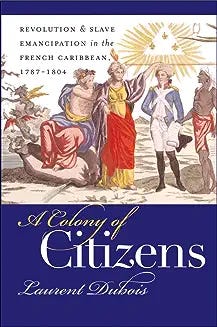Short Reviews for September 2023
A Colony of Citizens, The Making of Roman Italy, Trapped, Persuasion
Persuasion, by Jane Austen (249 pp; 1817)
Who should read this? People who like character-focused historical novels. Also, people who like internally-focused romances.
This's the first Jane Austen book I've actually read (after bouncing off the book Pride and Prejudice as a teenager, and then seeing my sister play Mary in an amateur theater production of the story). It's much slower than the novels I tend to read (and tend to blog about here), and more focused on our protagonist's internal life. Even less external events happen in it than in the dramatized Pride and Prejudice - probably because it's more focused on one protagonist, with no one else actively trying to meddle in her romantic relationships.
That said, I like it anyway. I can see why Austen is hailed as such a good writer. She brings me into this world and makes me want to watch our protagonist endure her trials and puzzle through her agonies of heart.
Our protagonist's character was vibrant, but I also felt how sadly limited she was. Austen portrays aristocratic British life in general as sadly limited - by fixed incomes, but much more so by social expectations and by the inward-focused nature of it. They split time between houses and visits and circles of spas and parties in a self-perpetuating cycle which is barren. It has no real lasting impact, no impact outside itself. As Austen points out, it was worse for women who had even less control of their fates inside this circle. But it was hollow for the men, too. (Even the occasional ship captains who can have some small impact with their ships are only permitted on the outskirts of this social world.) William Wilberforce the famous abolitionist, writing from inside that social class a few decades before Austin, had lamented how barren the interminable cycle of parties and spas was; I now feel that comment.
Austen seems to also appreciate how limited and hollow this is. The however-partial solution she offers in her books is romantic love. If that doesn't come close to everything, and (I would myself say) it pales beside Wilberforce's suggested remedy (in his words, "real Christianity") - yet, still, it is a realistic and substantial something. Judging from how wildly her books sold in her day, her contemporaries clearly agreed.
Trapped, by James Alan Gardner (416 pp; 2002)
Who should read this? People who like playing with fantasy tropes and don’t mind long worldbuilding digressions.
In the future after technological civilization has collapsed, after aliens have taken some humans to other stars and seeded Earth with nanobots that fake magic, and when Earth is very loosely ruled by a group of sorcerer-lords - after all this elaborate backstory, a group of Ohio schoolteachers goes questing to rescue a vanished promising student who has probably been kidnapped by an alien shapeshifter. Their quest gets entangled with politics, smuggling, romance, mysteries of lost technology, and interstellar war.
This's apparently loosely coupled with a number of Gardner's other books, but this's the first one I've read. All the elaborate backstory is explained in the moment as it ties in with the story, and I rather enjoyed sharing the protagonist's sense of stepping through a huge universe I'm barely starting to understand. (Also, on top of that, I was grinning at how Gardner splits the difference between science fiction and fantasy by having nanotech imitate magic.)
It took a while for me to really get into this book, mostly because the character introductions really didn't mesh with me or pique my sympathies. But once the action started, they did quickly gain my interest and sympathy. It was really fun going through this complicated world on a surprisingly compelling quest with interesting twists.
The Making of Roman Italy, by Edward Salmon (212 pp; 1982)
Who should read this? People already conversant with the history of the Roman Republic who want to dig into more.
This book digs into the details of how the Roman Republic gradually, over the fifth to first centuries BC, conquered and integrated Italy into its social and political orbit. Rome broke independent power structures, tying each city and tribe to Rome by bilateral agreements, and then integrated them into their military structure and (less intentionally) economic orbit. Throughout all this, Rome never seemed to have a coordinated policy. They had several different categories of city (such as cities with "Latin Rights," "colonies," or cities with "citizenship without the vote"), but variations and individual deals abounded and there was never a consistent policy of what to give which city. The only consistent policy was that every other city was clearly subordinate to Rome.
As one might guess, this caused problems: in 91 BC, a number of the Italian cities rebelled in the "Social War." After that, they were all given Roman citizenship just before Sulla's civil war, as the Republic started rushing toward its demise and Augustus. In many ways, that - Augustus's reinvigoration of Rome - was what finally integrated Italy into Rome.
This's an interesting story, but unfortunately, the interest and sparkle is all in the story and none in Salmon's telling. Salmon tells it quite dryly, and he tosses out references without setting the stage and with assuming the reader already knows all the background history. For example, he mentions Sulla's insurrection and purges almost without explanation, and he starts right into talking about which Italian cities allied with Hannibal while barely mentioning who Hannibal was. This's written for academics in the field, and it shows. Personally, I thought it was informative, but it was not a pleasure to read.
A Colony of Citizens: Revolution and Slave Emancipation in the French Caribbean, 1787-1804, by Laurent Dubois (452 pp; 2004)
Who should read this? People who want to see a new aspect of the story of the abolition of slavery, or the story of the French Revolution.
When the French Revolution proclaimed "Liberty, Equality, Fraternity," what did that mean for the French colonies founded on slave-worked plantations?
The answer, to the slaves themselves who eagerly took the news to heart, was quite simple. To the initial victorious revolutionaries eager to reform the world around Reason, it was also simple: they sent new governors to the Caribbean with orders to proclaim freedom, and enlist former slaves in the revolutionary army to enforce that freedom. For a while, as the former slaves set themselves up in happy freedom and the former slaveowners fled to nearby British islands in terror, everything looked glorious.
However, the new French Republic wanted the plantations to keep running. It needed the commodities and money. So, the same governors started mandating the freedmen stay on the fields to work. Matters became worse when the disarray of revolutionary finances meant their pay was late. They more and more ignored these orders, objecting on behalf of the Revolution's own promise. This betrayal and this odd juxtaposition - which Dubois emphasizes in detail - became even worse when the new Emperor Napoleon officially reinstated slavery. The local Black armies in Haiti kept fighting and gained a bloody and costly independence, but in the other colonies, they were defeated and killed or reenslaved.
Dubois tells this story step by step, with references to all the French Caribbean but an emphasis on the island of Guadeloupe as that's what he's researched the most. I was eager to read about each notable deed in this back-and-forth struggle, and each colorful character he highlights (by their deeds, with occasional digressions speculating on what we can infer about their character). The one biggest flaw is that there're just so many characters and deeds: I could have used more summary overviews to remind me who was who and what was what. Still, this's an able telling of a good story.







